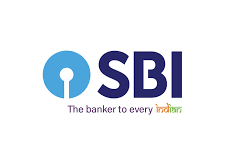Mumbai, 29th May 2025– The Indian Performing Right Society Ltd. (IPRS) welcomes the release of the CISAC Annual Report 2025, which showcases India’s strong growth in royalty collections and outlines a global call for ethical AI regulation in the creative industry.
The report underscores the importance of protecting creators’ rights and adapting to technological advancements to ensure fair remuneration and sustainable growth in the music sector.
India’s progress in royalty collections reflects the country’s commitment to strengthening its creative economy. The IPRS remains dedicated to supporting music creators and users by providing guidance on music copyright and facilitating legal music usage. As the industry evolves, the IPRS continues to advocate for policies and practices that uphold the rights of creators and promote the responsible use of technology in creativity.
According to the report, total royalty collections in India crossed Rs. 7 billion in FY24-25, reflecting a 42% increase over the previous year, and a 357% growth compared to 2020. This performance has moved India up significantly in global rankings – making it one of the fastest-growing music markets.
The report also highlights IPRS’s ongoing collaboration with CISAC to develop a strategic roadmap aimed at positioning India among the world’s top 10 creative economies. This includes targeted efforts to strengthen digital collections, address non-digital revenue challenges, and improve the licensing and distribution ecosystem.
Sharing his views, legendary creator and IPRS Chairman, Mr. Javed Akhtar, said, “A society that cherishes music must ensure that its creators are not forgotten in the shadows of technology and commerce. The significant rise in royalty collections is more than a number – it is a reflection of growing awareness around intellectual property, fair value for creative work, and the need for compliance across the industry. Yet, many challenges remain – as music travels far and wide in the digital age and AI presents new threats. From educating creators about their rights to ensuring the ethical use of their work across platforms, our mission is far from over. As a body representing those behind the music, we at IPRS are committed to protecting the rights of every music creator, addressing systemic gaps, and building an ecosystem where creativity is respected, rewarded, and rightfully owned.”
Highlighting the significance of the report Mr. Björn Ulvaeus, CISAC President, mentioned, “We are living through an era of unprecedented transformation. Nowhere is this more evident that in the rise of generative AI – a force that raises fundamental questions about the nature of authorship and creativity. Protecting creators’ rights in no way means trying to stop the advance of technology. On the contrary, it means embracing and licensing AI tools in a safe, legal environment. I say this as the number one fan of AI and of its possibilities for enhancing human creation. What is pre-requisite, however, is that creators’ rights are respected. Upholding creators’ rights is not only about fairness, it’s also about economic good sense.”
Mr. Rakesh Nigam, CEO of IPRS, added, “The remarkable growth in India’s royalty collections reflects not just a rising music economy, but also a growing recognition of creators’ rights – though there is still significant ground to cover. At IPRS, we are proud to lead this transformation—empowering creators, strengthening systems, and working with global partners to raise the standards of copyright governance. As technology reshapes the creative landscape, it is critical that innovation does not come at the cost of artistic integrity. Through strategic collaborations and a robust rights management framework, we remain committed to ensuring that every creator is respected, rewarded, and ready for the future.”
The report also spotlights IPRS’s participation in a global pilot project to link ISWC (musical work codes) with ISRC (sound recording codes), a step that will lead to more accurate and faster royalty payments for Indian creators.
On the global front, CISAC has raised a strong call for regulation of Generative AI. Its newly released Global Economic Study, published in partnership with PMP Strategy, warns that by 2028, music creators could lose up to 24% of their revenues if clear policies around AI-generated content are not implemented.
IPRS supports CISAC’s demands for:
- Transparency in AI training data
- Mandatory authorisation before use of creative works
- Fair compensation for creators
 Newspatrolling.com News cum Content Syndication Portal Online
Newspatrolling.com News cum Content Syndication Portal Online







